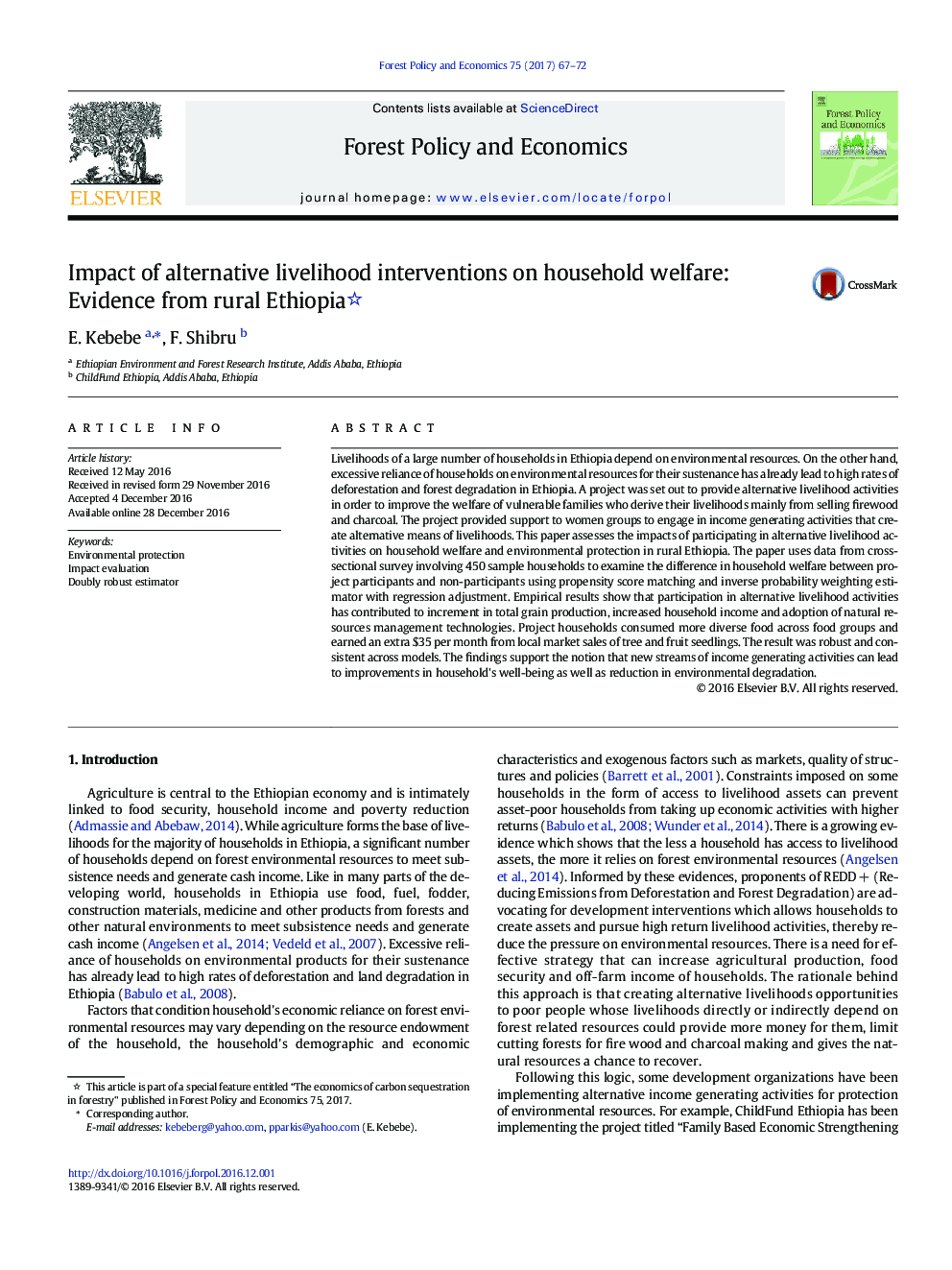| کد مقاله | کد نشریه | سال انتشار | مقاله انگلیسی | نسخه تمام متن |
|---|---|---|---|---|
| 6459792 | 1421664 | 2017 | 6 صفحه PDF | دانلود رایگان |
- Impact of alternative livelihood interventions on household welfare was assessed.
- Participants in alternative livelihood activities earned an extra $35 per month.
- New streams of income generating activities can improve household's wellbeing.
- Alternative livelihood interventions could reduce environmental degradation.
Livelihoods of a large number of households in Ethiopia depend on environmental resources. On the other hand, excessive reliance of households on environmental resources for their sustenance has already lead to high rates of deforestation and forest degradation in Ethiopia. A project was set out to provide alternative livelihood activities in order to improve the welfare of vulnerable families who derive their livelihoods mainly from selling firewood and charcoal. The project provided support to women groups to engage in income generating activities that create alternative means of livelihoods. This paper assesses the impacts of participating in alternative livelihood activities on household welfare and environmental protection in rural Ethiopia. The paper uses data from cross-sectional survey involving 450 sample households to examine the difference in household welfare between project participants and non-participants using propensity score matching and inverse probability weighting estimator with regression adjustment. Empirical results show that participation in alternative livelihood activities has contributed to increment in total grain production, increased household income and adoption of natural resources management technologies. Project households consumed more diverse food across food groups and earned an extra $35 per month from local market sales of tree and fruit seedlings. The result was robust and consistent across models. The findings support the notion that new streams of income generating activities can lead to improvements in household's well-being as well as reduction in environmental degradation.
Journal: Forest Policy and Economics - Volume 75, February 2017, Pages 67-72
